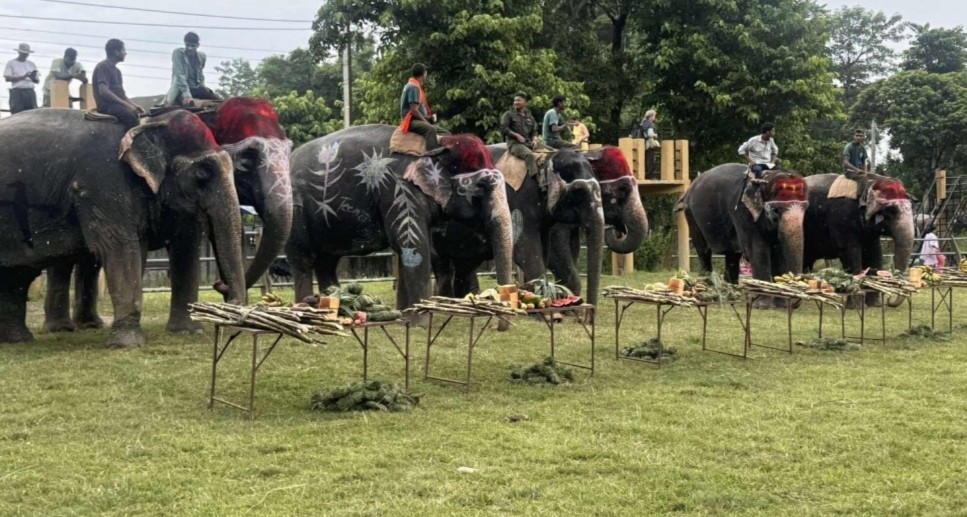Bardiya/Chitwan, Nepal - August 12, 2025
As the world observes World Elephant Day 2025 - marking the 114th International Elephant Day - conservationists are sounding the alarm over the rapidly declining population of Asian elephants. With just 8,000-11,000 wild elephants remaining across Southeast Asia and China, threats such as habitat loss, human encroachment, poaching, and escalating human-elephant conflict are pushing the species closer to extinction.
Wildlife experts warn that infrastructure projects, especially roads and urban expansion that intersect vital migration corridors, are severely fragmenting elephant habitats. This not only limits their movement and access to resources but also increases the likelihood of inbreeding and conflict with local communities.
In Nepal’s Bardiya National Park, a recent sighting of a wild elephant herd has offered a rare glimpse of hope. However, conservationists stress that without urgent measures to protect migration routes and reduce human-wildlife conflict, such scenes may become increasingly rare.
“Elephants are ecosystem engineers, essential for maintaining healthy forests, yet they are disappearing before our eyes,” said a wildlife biologist from Nepal’s Terai region. “If we fail to protect their habitats and ensure safe corridors, we risk losing them forever.”
Meanwhile, in Sauraha, Chitwan, elephants were treated to a special jungle feast organized by the United Elephant Operating Cooperative to mark the day. The event aimed to celebrate elephants’ cultural significance in Nepal and raise public awareness about the need for their protection.
Conservation groups across Asia are calling for urgent action - from strengthening anti-poaching laws to ensuring wildlife-friendly infrastructure design and enhancing community-based conservation programs. Public awareness campaigns, they say, remain critical in fostering coexistence between people and elephants.
This year’s World Elephant Day message is clear: governments, communities, and conservationists must work hand in hand to create a future where elephants and people can thrive together - before it’s too late.